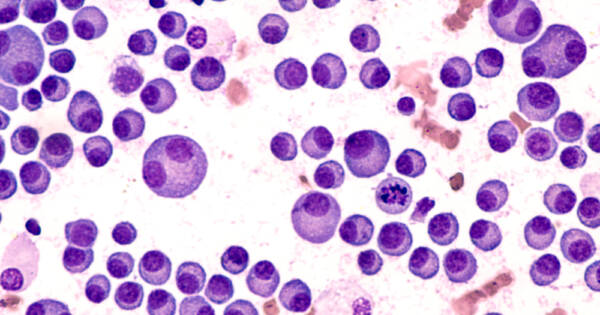Plaque psoriasis is a chronic skin condition that can significantly impact quality of life, characterized by red, scaly patches that often cause itching and discomfort. While there’s no outright cure, several treatments may help manage symptoms effectively and improve overall skin health. This article explores diverse approaches to managing plaque psoriasis, focusing on medical treatments, lifestyle adjustments, and potential natural remedies. Always consult a healthcare professional before starting or changing any treatment plan.
Understanding Plaque Psoriasis: A Brief Overview
Plaque psoriasis is the most common form of psoriasis, affecting around 80-90% of individuals diagnosed with this skin condition. Psoriasis causes an overproduction of skin cells, leading to inflamed plaques that may appear red with silvery-white scales. These patches most commonly affect areas like the elbows, knees, lower back, and scalp. Symptoms vary from mild to severe, and some may also experience psoriatic arthritis, a related condition causing joint inflammation.
While the exact cause of plaque psoriasis remains unknown, it’s believed to result from a combination of genetic and environmental factors. The immune system plays a central role, with abnormal immune responses leading to inflammation and accelerated skin cell turnover. Effective treatment for plaque psoriasis often involves a multi-pronged approach, blending medical therapies with lifestyle modifications.
Topical Treatments: First-Line Options
For mild to moderate cases of plaque psoriasis, topical treatments are often the initial recommendation. These treatments are applied directly to affected skin areas, working to reduce inflammation, slow skin cell turnover, and soothe irritation.
- Corticosteroids: Often the first treatment prescribed for plaque psoriasis, topical corticosteroids come in various strengths and are applied to affected areas to reduce inflammation. While generally effective, long-term use of corticosteroids can lead to thinning skin and other side effects, so they are best used under careful supervision.
- Vitamin D Analogues: Calcipotriene and calcitriol are synthetic forms of vitamin D often used in topical treatments for psoriasis. These analogues help slow down skin cell growth and can be used alongside corticosteroids for enhanced effectiveness.
- Retinoids: Derived from vitamin A, retinoids like tazarotene help reduce inflammation and slow cell production. While effective, they may cause skin irritation, making them less ideal for sensitive areas.
- Salicylic Acid: This ingredient is commonly found in over-the-counter psoriasis treatments and helps remove dead skin cells, which can smooth and soften plaques. It’s often combined with other therapies to increase absorption and effectiveness.
Phototherapy: Utilizing Light for Relief
Phototherapy, or light therapy, is a treatment option often recommended for moderate to severe cases of plaque psoriasis. Under medical supervision, controlled doses of natural or artificial UV light are applied to affected areas to help reduce inflammation and slow cell turnover.
- UVB Therapy: UVB light is effective in treating psoriasis by targeting skin cells responsible for the overgrowth. This type of therapy is usually conducted in a medical setting, though home-based units are available for those who benefit from regular treatment.
- PUVA Therapy: PUVA combines UVA light with a photosensitizing medication called psoralen, which makes the skin more receptive to light. Although effective for some, PUVA can increase the risk of skin aging and skin cancer over time, so it’s generally reserved for cases where other treatments are not effective.
- Laser Therapy: Targeted laser treatments, such as excimer laser therapy, focus high-intensity UVB light on specific plaques, reducing inflammation and scaling. Laser therapy may be an option for individuals with resistant or localized patches.
While phototherapy can be beneficial, it’s essential to discuss it thoroughly with a healthcare provider, as excessive exposure to UV light may lead to skin damage or increased skin cancer risk.
Systemic Medications: Addressing Severe Cases
When plaque psoriasis is severe or doesn’t respond to topical or phototherapy treatments, systemic medications may be an option. These medications work throughout the body to target the immune system, and they often come with potential side effects, making regular monitoring essential.
- Biologics: Biologic drugs, such as adalimumab, infliximab, and etanercept, target specific parts of the immune system that contribute to psoriasis. Administered through injections or intravenous infusions, biologics may significantly reduce symptoms in many patients. While they offer promise, they also come with a higher risk of infections due to immune suppression.
- Methotrexate: Originally used for certain cancers and autoimmune conditions, methotrexate can help reduce inflammation and slow cell turnover in psoriasis. However, long-term use can affect liver health, so patients on methotrexate require periodic liver tests and other monitoring.
- Cyclosporine: Cyclosporine is an immunosuppressant that can provide rapid relief for severe psoriasis. Due to potential kidney damage and high blood pressure risks, it’s generally used short-term and under close medical supervision.
- Oral Retinoids: Acitretin, an oral retinoid, is another option for those with severe psoriasis. It’s typically used for individuals who cannot take other systemic treatments. However, it may lead to birth defects, so it’s not recommended for women who are pregnant or planning to become pregnant.
Complementary and Lifestyle-Based Approaches
Many people with plaque psoriasis also explore complementary treatments to help manage their symptoms alongside medical care. Lifestyle changes may also play a crucial role in improving skin health and quality of life.
- Dietary Adjustments: While no specific diet cures psoriasis, some people report improvements by avoiding inflammatory foods, such as processed items and sugars, while incorporating more fruits, vegetables, and omega-3 fatty acids. However, individual results may vary.
- Stress Management: Since stress can exacerbate psoriasis, stress-reduction techniques such as mindfulness, yoga, and regular exercise may provide relief.
- Moisturizing and Skin Care: Daily use of emollients and moisturizing creams can help reduce itching and discomfort. Avoiding harsh soaps and hot showers may also prevent further irritation.
- Natural Remedies: Some natural treatments, like aloe vera, tea tree oil, and turmeric, have shown anecdotal benefits for skin health. However, always consult a healthcare provider before incorporating any natural supplements into a psoriasis regimen.
Learn More Today!
Effectively managing plaque psoriasis often requires a balanced, personalized approach. While there is no one-size-fits-all treatment, options such as topical treatments, phototherapy, systemic medications, and lifestyle adjustments may help alleviate symptoms and improve quality of life for many.
Success with psoriasis treatments varies, and what works well for one person might not work for another. Always work closely with a healthcare provider to create a tailored treatment plan that suits your needs, and remember that managing plaque psoriasis is an ongoing process that may require adjustments over time.





